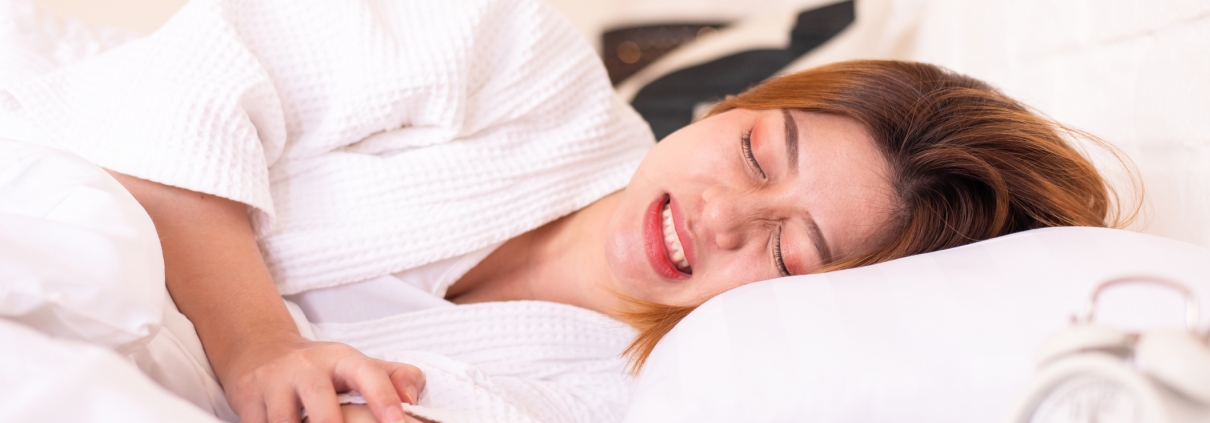Grinding teeth
Many parents sometimes notice their children’s teeth grinding while sleeping. However, because children’s teeth and jaws change and grow so quickly, it’s not usually a destructive habit that needs treatment, and in most children it goes away as they get older. The main causes of teeth grinding in children include the following:
A feeling of pain when the teeth are erupting
Stress and emotional anxiety
Medicines such as antidepressants, antipsychotics
Medical conditions such as cerebral palsy, attention deficit hyperactivity disorder (ADHD)
Many of the symptoms of teeth grinding in children are the same as in adults.
Management of grinding teeth in children depends on the amount of wear, the age of the child, the symptoms experienced, and the needs of the child and the parent or caregiver. A dentist or oral hygienist is needed to fully assess each child’s condition.
How does grinding teeth affect your oral health?
When you clench your teeth or grind your teeth while you sleep, the pressure force can be much higher than when you chew regularly. When eating, food causes chewing movements. But with sleep grinding, your teeth receive all the force. Grinding teeth can lead to:
Wear of tooth enamel and possibly dentin which leads to tooth sensitivity.
Tooth gap or lip filling, Denture Bridge or implants
Tooth sensitivity
Painful or loose tooth
Facial pain due to contraction of jaw muscles
Headache
Causes of teeth grinding
Many things can lead to teeth grinding. Some possible reasons are:
Sleep problems
Negative emotions such as stress
Lifestyle factors such as tobacco use, caffeine and alcohol consumption
Some medications
Snoring, sleep talking, and sleep apnea
Snoring, sleep talking and even sleep apnea can contribute to teeth grinding. Sleep apnea affects your breathing while you sleep.
Stress, anger and anxiety can cause teeth grinding
Lifestyle can play a role in teeth grinding in adults
Smoking and drinking alcohol can increase the risk of teeth grinding, especially if consumed before bedtime.
Medications and disorders can lead to teeth grinding
Consult your doctor in these cases.
Prevention and treatment of teeth grinding
If you suspect that you grind your teeth at night, visit your doctor and report the symptoms. The dental hygienist is also trained to recognize common signs and symptoms. The good news is that you can reduce one of the biggest causes of teeth grinding right now with these tips:
Be relaxed
People with grinding teeth press their teeth together due to stress or anxiety. Relax before going to bed. Take a hot shower, read your favorite book
Use a night guard
If you still grind your teeth, talk to your dentist about using a night guard or mandibular advancement appliances.
Mandibular advancement devices
Mandibular advancement devices are special devices that move your lower jaw forward while you sleep. These are ideal for treating teeth grinding, which is most likely caused by a sleep disorder.
If grinding teeth leads to broken fillings, crowns, wear or fracture, the dentist will repair the fillings and crowns. A dentist may recommend orthodontic treatment to adjust the bite or correct tooth misalignment. Stress reduction techniques are another option you can start today!

